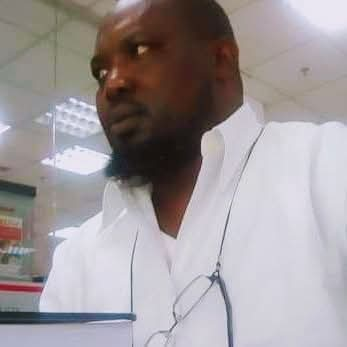Beyond Religion: Rethinking the Boko Haram crisis as a political problem, by Dr. Tukur Madu Yemi
The Boko Haram insurgency is one of the biggest threats to peace, security, and unity in Nigeria. Over the years, many respected Nigerians have spoken about the group’s origin and nature.
Among them are Malam Adamu Adamu and Professor Wole Soyinka, who both offer important but different views. However, as the crisis continues, it has become clear that Boko Haram should not be seen as just a religious problem. At its heart, it is a political issue.
Malam Adamu Adamu, a former Minister of Education under President Muhammadu Buhari, has always said that Boko Haram does not represent Islam. Although he is not a religious leader, many people respect his views. He reflects what many Nigerian Muslims believe that Islam is a religion of peace, and Boko Haram’s actions go against Islamic teachings. In fact, many of the group’s victims are Muslims. They have attacked mosques, killed Islamic scholars, and displaced Muslim communities. These acts show that their violence targets anyone they see as an enemy, not just people of other religions.
Professor Wole Soyinka, a Nobel Prize winner and public thinker, gives a wider historical view. He believes the Boko Haram crisis is part of a long pattern in Nigeria, where political leaders use religion to gain power. For Soyinka, the real issue is not religion itself, but how it is used for political purposes. His view encourages us to look deeper into the political reasons behind the group’s growth and continued activities.
Both Adamu and Soyinka make important points. But if we keep thinking of Boko Haram only as a religious group, we may misunderstand what they truly are. Boko Haram is better seen as a political movement that uses religion as a cover.
Looking at how the group operates supports this idea. Boko Haram has taken over land, enforced its own laws, collected taxes, set up local governments, and even talked to government officials. These are not things typical of a religious group—they are actions of a political organisation. Their methods are similar to other global insurgent groups like the Taliban in Afghanistan or FARC in Colombia, both of which used ideology to hide political goals.
Also, Nigeria’s weak political system has helped Boko Haram grow. The government’s response has often been slow, poorly planned, and not consistent. Despite large military spending and foreign support, progress has been slow. In many parts of the northeast, the government is barely present, giving Boko Haram space to grow. Poverty, joblessness, and lack of education in these areas make it easy for the group to recruit new members.
This situation raises serious questions
Why do many areas still lack basic infrastructure and services?
Why are millions of young Nigerians out of school and without jobs?
Why has the government failed to fix the conditions that push people into extremism?
These are not religious questions—they are political problems. When we wrongly see Boko Haram only as a religious issue, we create bad solutions that do not work.
To end Boko Haram and stop future insurgencies, Nigeria must fix the political and social problems at the root of the crisis. This will take more than soldiers. It needs a full plan for development and political reform. Nigeria must improve education, create jobs, strengthen local government, and rebuild trust between the people and the state.
This does not mean we ignore the views of people like Malam Adamu Adamu and Professor Soyinka. In fact, their thoughts help us understand the issue better. But as we look ahead, we must accept that Boko Haram is a sign of Nigeria’s deeper political problems—not just a religious problem.
Only through serious reform and fair governance can Nigeria defeat the insurgency and build a peaceful and united future.
Dr Tukur Madu Yemi writes from the Federal University of Kashere, Gombe State.
Follow the Neptune Prime channel on WhatsApp:
Do you have breaking news, interview request, opinion, suggestion, or want your event covered? Email us at neptuneprime2233@gmail.com





